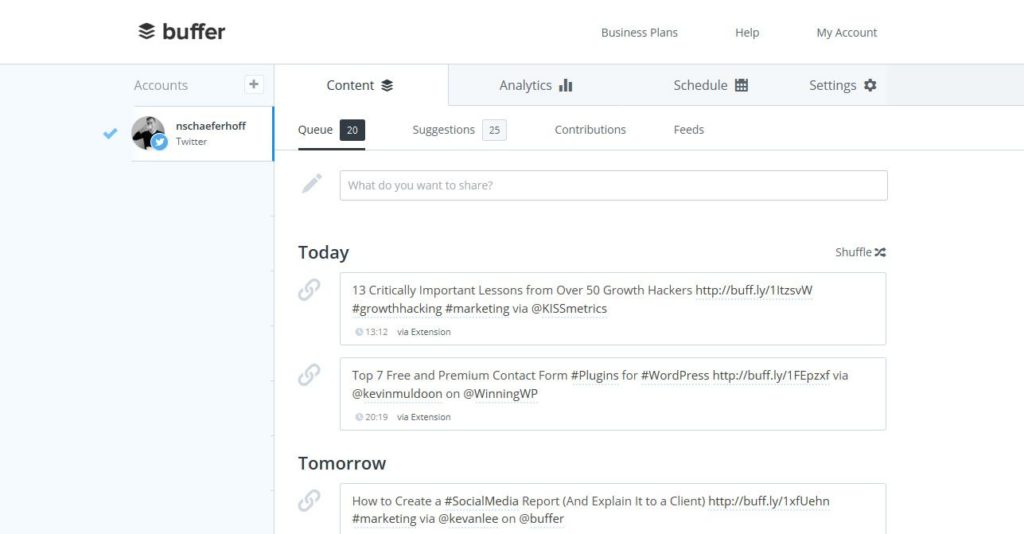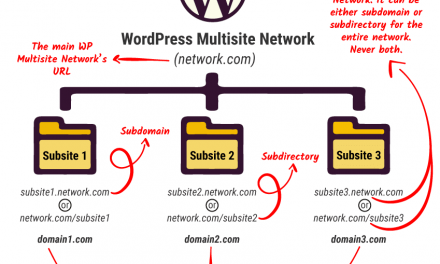Online marketing can take a lot of time, energy, and resources, however necessary they are. As a consequence, you could wind up neglecting other essential parts of your business. Time to learn how to automate your online marketing.
Through the use marketing automation tools you can take some of the load off your daily to-do list. Today, we’ll first be talking about how that works. From there, we’ll dive into a discussion of tools you can use to automate various aspects of your online marketing workflow.
Let’s get going.
How Marketing Automation Works
Marketing automation is the process of using software to take care of various marketing tasks and activities without needing to take direct action. This can mean several different things depending on the tools you use.
For example, some tools allow you to schedule repetitive tasks in advance so you don’t have to do them manually. You find this most typically in scheduling social media posts.

Another way to automate your online marketing is to onboard new customers by sending a series of emails and drip campaigns when they sign up to an email form. Collecting leads in the form of popups is another automation tool.
Again other tools are able to interpret the behavior of website visitors and trigger events based on a set of predefined criteria. This is often achieved through the use of cookies and can mean a popup that appears after visiting a certain number of page. Abandoned cart emails for those who didn’t finish their purchase are a similar concept.
Finally, many marketing automation tools integrate with customer relationship management software or CRM. This makes it easier to interpret the results and take further action.
Are you curious as to what kind of tools you have at your disposal? Then let’s go over that now.
Email Marketing Tools
Since one of the first steps in marketing automation is often lead collection, that’s where we’ll be starting here.
What follows are some high-powered email marketing tools that can streamline and automate your email marketing efforts. This means collecting emails from your website, adding prospects to a lead nurturing campaign, following up with potential customers and so much more.
Here are a few top picks for that.
1. AWeber

AWeber is a tried-and-true email marketing platform that small to medium-sized businesses use to connect with their audience and customers. It integrates with a variety of platforms like WordPress, includes templates for newsletters and autoresponders, comes with list management, email tracking as well as insights.
With full support on tap, a robust tutorial library, and a 30-day free trial, AWeber is pretty risk-free. It also offers enough features to get you connecting quickly.
2. Constant Contact

Constant Contact is another great option. It’s super easy to use and often recommended as a great choice for startups and smaller companies, due to its quick setup and low maintenance needs. With it, you can create email lists, use templates, and set up a calendar that, once configured, will operate automatically. This obviously frees up your schedule to handle other aspects of business.
A few other features worth mentioning include social media sharing, list segmentation, Facebook ad integration, and integration with Shopify. You can try Constant Contact for 60-days before committing to a monthly plan.
3. Mailchimp

Here’s our next email marketing option. Mailchimp is a popular choice across all industries (see our beginner’s guide to see why). One of the reasons it’s so popular is that it has a free-forever plan that works well for smaller ventures.
Features worth mentioning include autoresponders, email templates, and a drag-and-drop email builder. In addition to that, it comes with list segmentation and analytics. You can also vary email delivery based on timezone and location. Mailchimp integrates well with most popular CMS and offers decent support.
The only real drawback here is that it doesn’t offer the same level of marketing automation as other email marketing service providers do, even on its paid plans.
4. Drip

The last email marketing service we’ll be discussing is Drip. This one aims toward enterprise-level businesses and provides a robust platform for all company types. It’s designed to fully automate your email marketing tasks and seamlessly integrates with your sales funnels.
Drip works with all popular CMS and website builders including WordPress. It also enables you to create popups and lead forms to insert onto your website.
In addition, the service offers a wide range of advanced marketing features. These include all segmentation, split testing, list groups, and a workflow builder. Basically, Drip allows you to customize and personalize your marketing automation so that you appeal to the widest number of people in the most relatable ways possible. It also offers robust support including training, courses, and guides for using the service.
Social Media Marketing Tools
Social media is another time-consuming aspect of online marketing that you can automate. Numerous tools exist for streamlining this process.
With the services listed below you can plan your social sharing schedule ahead of time. Many also allow team members to create social posts to review at a later date, collaborate on content curation, and even seamlessly create graphics from within them.
Let’s explore each a bit.
1. Buffer

A popular social media scheduling tool is Buffer. What stands out about this tool is how easy it is to use. The interface is intuitive and super simple, making it a preferred choice for startups. However, larger businesses can benefit as well.
Buffer definitely has a “set it and forget it” quality. You can add all of your social accounts to it and then create custom content for each.
Pick times and days of the week to publish posts (or let Buffer choose for you). Install their browser extensions to instantly add interesting articles you discover to the queue. This takes a lot of the guesswork out of curating content as well.
Once your updates have been shared, view analytics for each post to see what types of content perform the best, as well as what times and days get the most interactions. Though getting started with Buffer is possible for free, the paid plans support more accounts and more team members.
2. HootSuite

Another option for social media automation is HootSuite. This powerful tool works well for any type of business that needs to schedule their posts in advance.
After connecting your company’s social accounts to this platform, you get a bird’s eye view of all scheduled content at once. Easily drag and drop posts to different time slots and even different platforms. Once your content has been shared, use the built-in analytics to view how many people saw your posts and how much engagement they received.
Many of the tools provided by HootSuite are available for free. Yet, their paid plans offer more in-depth analytics and control.
3. Sprout Social

For an all-in-one social media tool, you might want to check Sprout Social. This is another strong contender for automating the online marketing process.
What’s great here is that Sprout Social provides “multi-level” access. This means managers can coordinate with and delegate tasks to team members without providing full access or permissions to company accounts.
The service allows you to schedule social posts in advance, of course. However, it also provides analytics, social listening, and greater demographic and optimization information than many of the other tools listed here.
4. CoSchedule

The Social Organizer tool offered by CoSchedule takes the guesswork out of social media scheduling. First of all, it saves you a lot of time by offering templates to create schedules and also specific types of posts.
Once shared, you can use CoSchedule to monitor the conversations happening around your posts from one location, all at once. Analytics allow you to see what’s working and what might need improvement for the future.
All-in-One Marketing Automation Tools
What follows are some marketing software options that cover every aspect of your online marketing, letting you automate it fully.
1. Marketo

Marketo is a full-service tool. It offers in-depth services and resources for creating email marketing campaigns, sales funnels, and more.
The target demographic for this tool is businesses with a bit of marketing budget that want to dive deeper into the possibilities of automation without shelling out for enterprise-level software. It provides in-depth analytics and tools for customizing and targeting your content, ads, email blasts, and social campaigns to the right demographics.
And best of all, your efforts are channeled into your CRM of choice. This makes it infinitely easier to follow up with prospects in a timely manner.
2. HubSpot

Another all-in-one marketing tool you should know about is HubSpot. It consists of several services you can use to handle your entire marketing, sales, and customer service workflow.
There’s the Free HubSpot CRM to start collecting leads and building relationships with customers. For more features, try their premium offers. These include the Marketing Hub, which automates the process for converting website visitors into customers. It helps with lead generation, analytics, and more.
3. Omnisend

The next option is Omnisend. It’s described as a multi-channel marketing automation tool that helps you manage email, SMS, Facebook Messenger, and push notifications. The service is quick to set up and makes it easier to build effective relationships with prospects across multiple channels.
4. Pardot

Pardot is very popular with larger businesses and enterprises. It does the heavy lifting for lead generation and lead nurturing but can also perform other tasks.
Once set up, Pardot tracks website visitor behavior and, based on that, follows up with specific content campaigns. All of this happens automatically, you don’t have to step in and manage things manually at all. From social outreach to email autoresponders, Pardot can be configured to handle it all.
5. Eloqua

Eloqua is the last tool we’ll discuss here today. It’s designed to help you configure and implement marketing campaigns that touch customers across multiple channels and stages of the buying journey.
The service features robust tools for targeting and segmentation, lead management and scoring. It allows you to create campaigns across channels, comes with analytics, and delivers marketing prospects straight into your sales funnels. Eloqua is definitely aimed at the enterprise set, however.
What Part of Your Online Marketing Will You Automate?
Marketing activities can eat up a lot of time. Time that business owners often don’t have. By automating parts or all of your online marketing, you can free yourself up for more important tasks and often yield better results.
Once you understand the process, a combination of all-in-one solutions as well as targeted tools for email and social media help expand your outreach and increase your customer base.
Setup will take some time, no doubt. But the initial investment will pay off in the long run. Instead of manning all marketing operations on your own, you can rely on a well-oiled machine in the background.
How do you automate parts or all of your online marketing? Any additional tips or tools are welcome in the comments section below.











